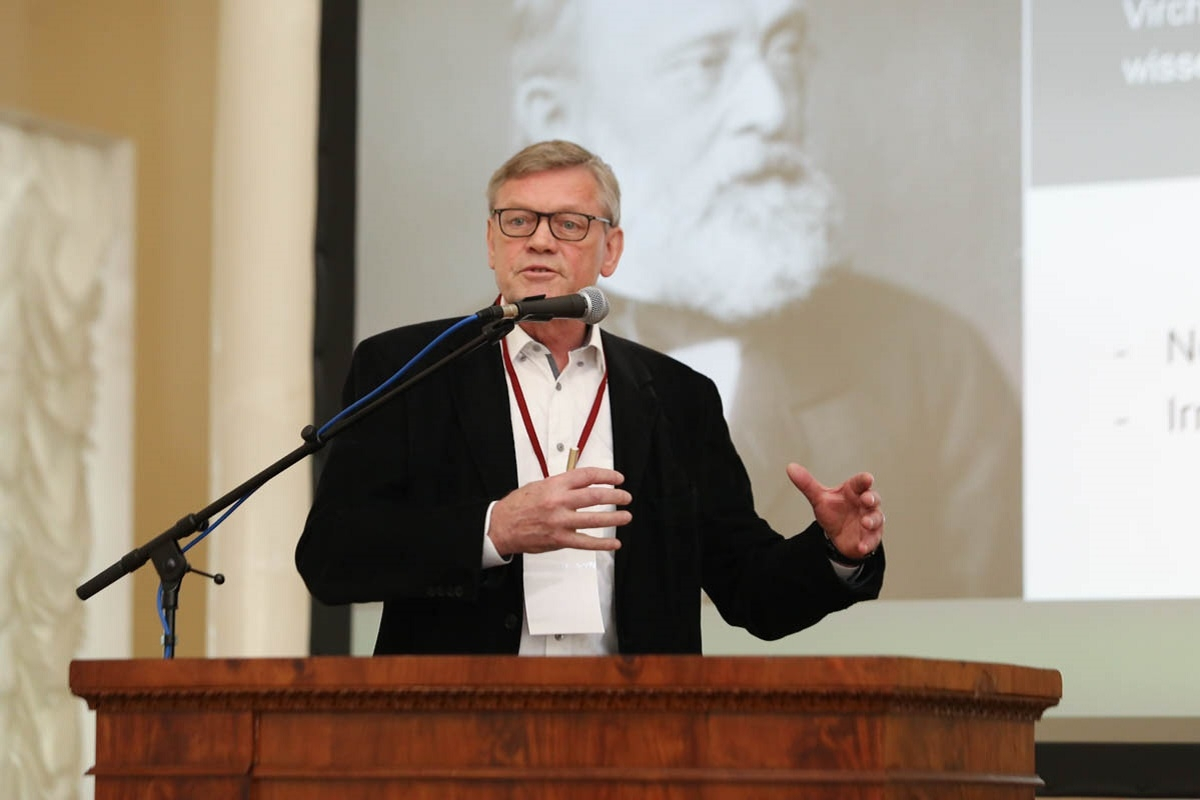St Petersburg University to set up a laboratory in search of new ways to combat atherosclerosis
Scientists from St Petersburg University, together with their foreign colleagues, have won a mega-grant of 90 million roubles from the Ministry of Science and Higher Education of the Russian Federation. The grant will be used to set up a laboratory for specialists to carry out research into the understudied mechanisms of atherosclerosis and develop new ways to combat it.

The expert committee considered almost 300 applications from 49 regions of the country and selected 30 of the most promising and relevant projects. The committee supported two applications in medicine, one of which had been submitted by St Petersburg University.
Atherosclerosis is a chronic disease of the large and medium-sized arteries, gradually disturbing their structure and function and leading to insufficient blood supply to organs and tissues. Some of the most common causes of death, such as heart attacks and strokes, are usually the result of atherosclerosis. Diseases associated with atherosclerosis remain the number one cause of death in Russia and many countries throughout the world.
Everyone knows about the effects of cholesterol deposits in atherosclerosis. However, the role of the small vessels that supply blood to the walls of large arteries remains unclear, though the hypothesis behind the grant-winning project suggests that it may be very significant.
Professor Axel Haverich, a foreign member of the Russian Academy of Sciences, M.D., one of the best known thoracic surgeons in the world and director of the Clinic for Cardiac, Thoracic, Transplant and Vascular Surgery at the Hannover Medical School (Germany), is to head the project and its research. The project also includes Leonid Churilov, Associate Professor in the Department of Pathology at St Petersburg University, Candidate of Science (Medicine). He is the author of more than 630 research papers, including about 30 monographs, manuals and textbooks on pathophysiology, immunology and endocrinology. The laboratory will be staffed by pathologists, surgeons and cardiologists. Young researchers, postgraduate and undergraduate students will also be involved in the work of the established facility.
The scientists will develop the hypothesis proposed by the head of the new laboratory, Axel Haverich, several years ago. Professor Haverich postulated that the formation of plaques is not caused by a simple reaction to the deposition of lipoproteins, as was previously thought. According to the observations, atherosclerosis affects the arteries and sections of the arteries with the so-called feeding vessels (vasa vasorum, Latin for: vessels of the vessels). According to doctors, inflammation and dysfunction of these microvessels lead to the formation of atherosclerotic plaques in large arteries. The scientists suggest that inflammation of the vasa vasorum can be caused by various factors, such as viruses, bacteria, autoimmune disorders and even by inhaling fine dust particles. There is considerable pathomorphological and epidemiological evidence in favour of this hypothesis. Among other things, it might explain the numerous complications associated with vascular disease in patients who have had COVID-19.
St Petersburg University pioneered research into the origins of atherosclerosis. In 1911-1912, Semen Khalatov (1884-1951), a graduate of the University, together with Nikolay Anichkov (1885-1964) from the Military Medical Academy, produced the world’s first experimental model of atherosclerosis, which demonstrated the effect of cholesterol accumulation in arterial walls on its development. Today, St Petersburg University operates the largest Research Park in Russia and one of the most advanced research facilities in Europe, with all the necessary equipment for medical research.
The researchers will compare classical and new experimental models of atherosclerosis in laboratory conditions, and then, based on the accumulated data, test new methods of preventing atherosclerosis. The project will include both experimental (on model animals) and clinical and pathophysiological studies involving patients at clinical sites of St Petersburg University. The research will help to enhance the treatment and prevention of atherosclerosis.

